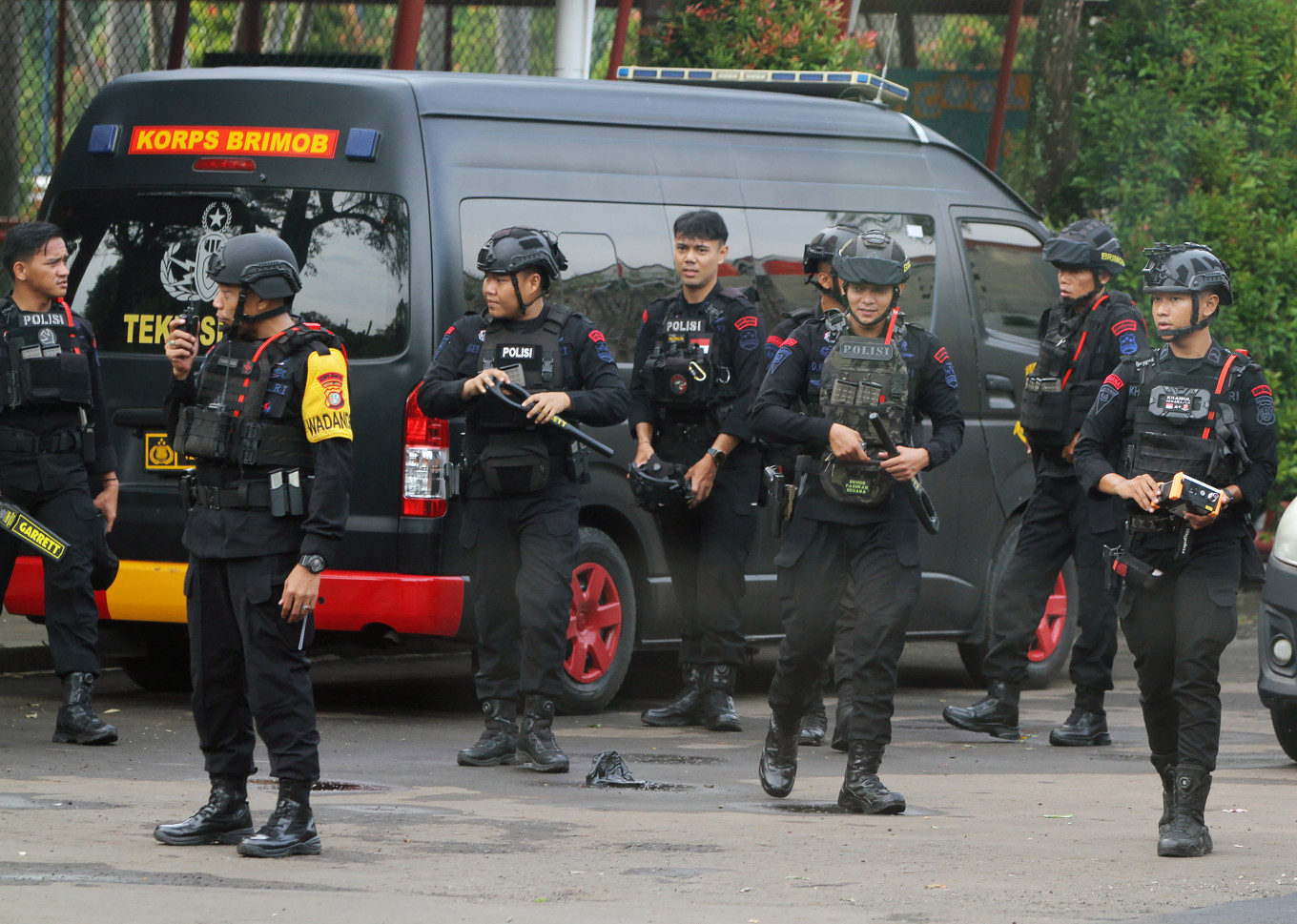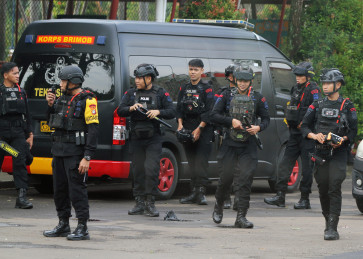Popular Reads
Top Results
Can't find what you're looking for?
View all search resultsPopular Reads
Top Results
Can't find what you're looking for?
View all search resultsChild bomb maker: A wake-up call for protection, not punishment
Around the world, minors have been pulled into extremist violence through a combination of online influence, emotional turbulence, and unmet social needs.
Change text size
Gift Premium Articles
to Anyone
 Members of the Jakarta Police Mobile Brigade’s bomb squad prepare on Oct. 7, 2025, to sweep for explosive materials at Mentari Intercultural School in South Tangerang, Banten. The bomb threat the school received earlier that day was determined to be a hoax after a three-hour inspection that yielded no explosives. (Antara/Muhammad Iqbal)
Members of the Jakarta Police Mobile Brigade’s bomb squad prepare on Oct. 7, 2025, to sweep for explosive materials at Mentari Intercultural School in South Tangerang, Banten. The bomb threat the school received earlier that day was determined to be a hoax after a three-hour inspection that yielded no explosives. (Antara/Muhammad Iqbal)
I
ndonesia was jolted on Nov. 7 when a series of improvised explosive devices detonated inside a Jakarta school complex during Friday prayers, an unprecedented act of violence carried out not by a seasoned militant, but by a 17-year-old boy.
More than 90 students were rushed to hospital with burns, shrapnel wounds and injuries from shattered glass. Miraculously, no one died.
The suspected perpetrator, who was also injured, reportedly built the bombs at home after learning techniques on the dark web. Police say he was inspired by white supremacist and neo-Nazi attacks abroad, though he had no known ties to an organized extremist network.
This disturbing incident raises a question that societies often prefer to ignore: How does a child reach a point where violence becomes thinkable? And even harder: How should we respond when the perpetrator is also a minor, still legally, neurologically and morally a child?
Having spent two decades interviewing former extremists, from Indonesia, Malaysia, and the Philippines to Syria, I have long believed that radicalization is never a straight path. It is a web of vulnerabilities, emotions and circumstances. And when the individual involved is a child, that web becomes even more fragile.
What we are seeing is not simply “terrorism” as we traditionally understand it, but a child-protection crisis unfolding in the digital age.
Indonesia is not alone. Around the world, minors have been pulled into extremist violence through a combination of online influence, emotional turbulence and unmet social needs.

















